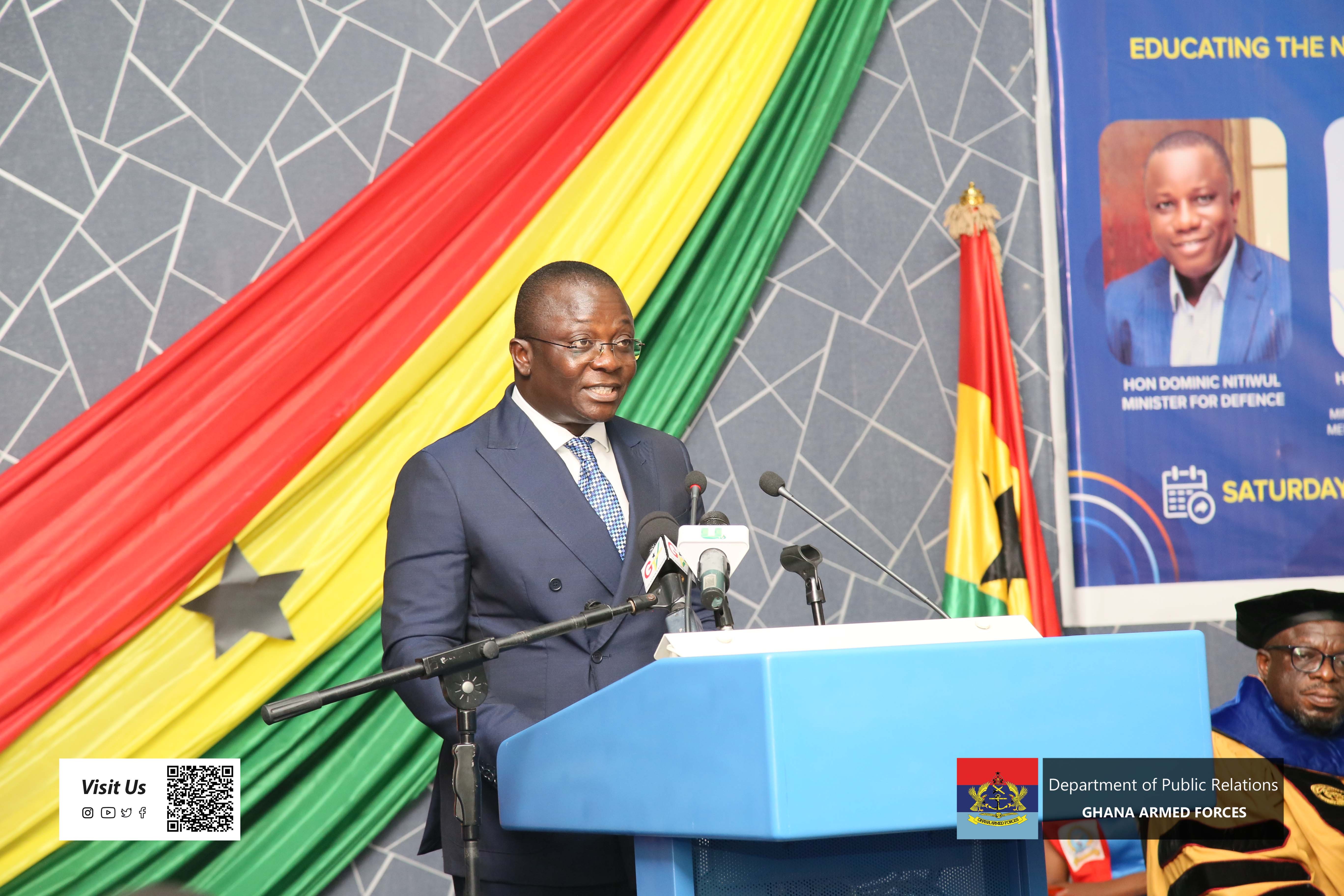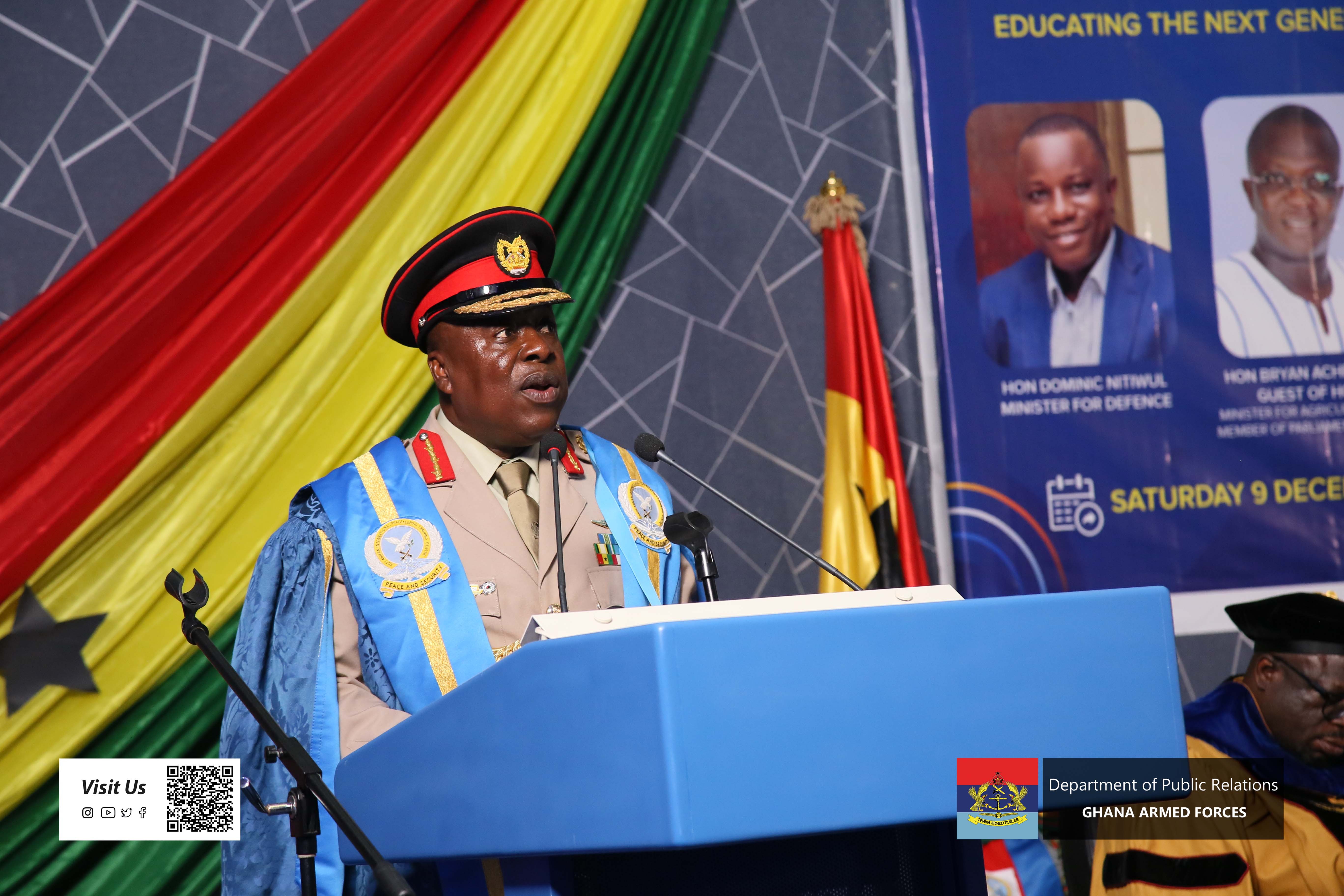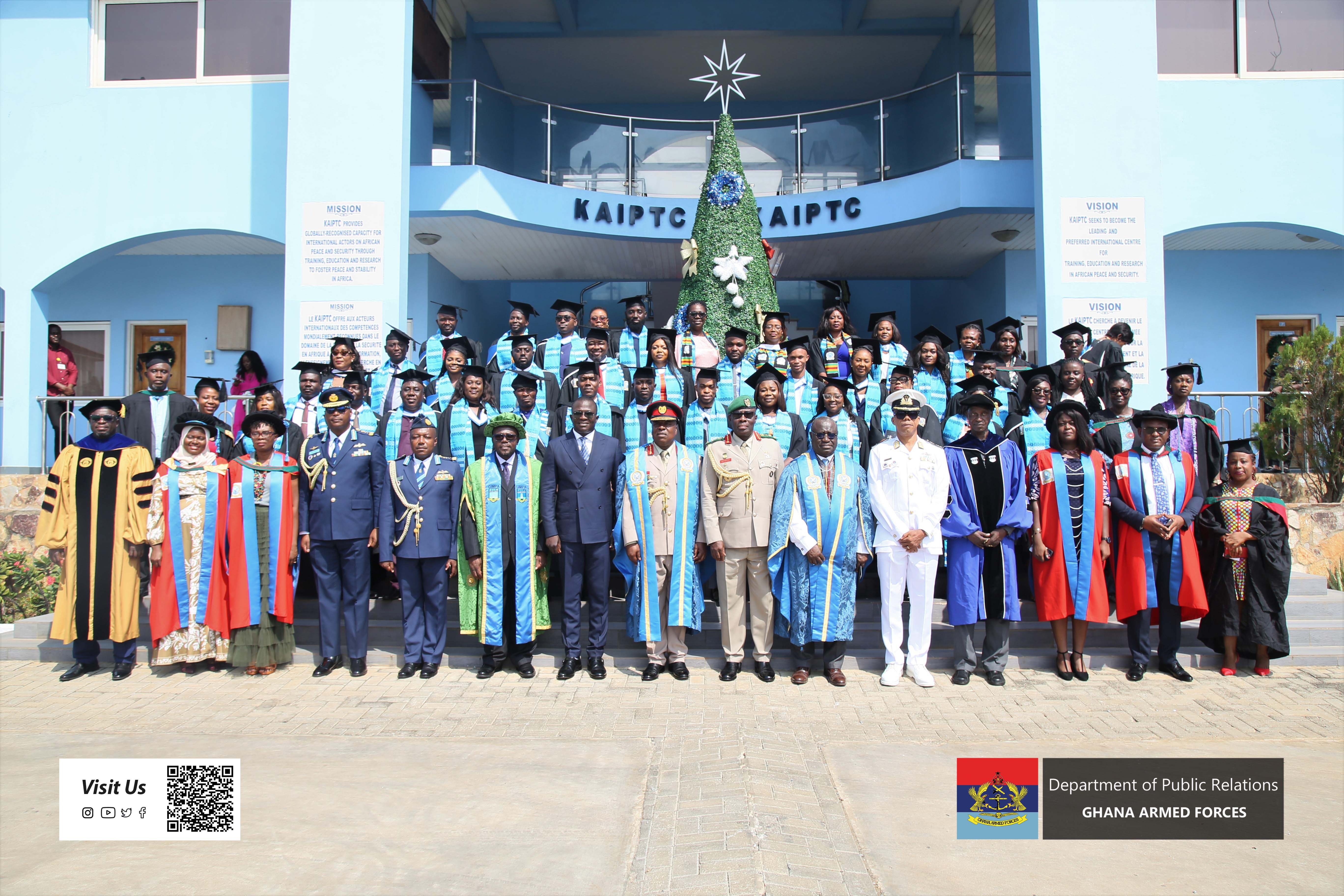The Kofi Annan International Peacekeeping Training Centre (KAIPTC) has held its 12th Joint Graduation Ceremony for the Master Class on 9 December, 2023, at Teshie.
A total of 37 students graduated across various fields, including; Master of Arts in Conflict, Peace, and Security (MCPS), Master of Arts in Gender, Peace, and Security (MGPS), Master of Arts in Conflict, Peace, and Security Weekend (WMCPS), and Executive Master of Arts in Conflict, Peace, and Security (EMCPS).
The Guest of Honour for the ceremony, Minister for Food and Agriculture Honourable (Hon) Bryan Acheampong in addressing the challenges threatening state and human security in Africa, identified issues such as violent extremism, youth unemployment, bad governance, and human rights violations.

He expressed concerns about the resurgence of military coups and democratic reversals in some West African states. Noting that since 2020, the region has witnessed about six successful coups with multiple coup attempts, the latest being in Sierra Leone. The trend he said raises fundamental questions about the effectiveness of democracy and constitutionalism in the region.
He said the nature of conflicts have evolved over the last two decades. This has prompted African states and peacekeeping organizations to adapt their security and military capacities to address emerging and existing threats.
The Minister expressed confidence in KAIPTC's well-resourced, research-based, and practical experience in conflict prevention, peace and security studies, and peace support operations. He commended the Centre for challenging and changing the status quo, contributing significantly to African peace and security efforts over the past decade.
In an address, Major General Richard Addo Gyane, Commandant KAIPTC, emphasized the theme; “Educating the Next Generation of Peacebuilders in Africa” and highlighted the challenges that Africa faces to include historical conflicts, extremism, and arms proliferation.
He also stressed on the role of the youth in achieving sustainable peace and underscored the Centre’s commitment to providing quality education with focus on leadership, conflict resolution, empathy, moral standards, and anti-corruption efforts.

The Commandant urged the graduands to be vigilant in identifying potential conflict signals and collaborate with academia to address emerging community issues. He further encouraged them to apply their analytical skills to guide discussions and uphold transparency, fair play, and integrity in their roles as critical thinkers.
The Commandant emphasized that education involves transforming attitudes and opinions to foster unity in diversity, instilling moral values, and developing leadership skills, therefore, he called on graduands to be ambassadors of peace, contribute to a brighter and harmonious Africa through the transformative power of education.




























